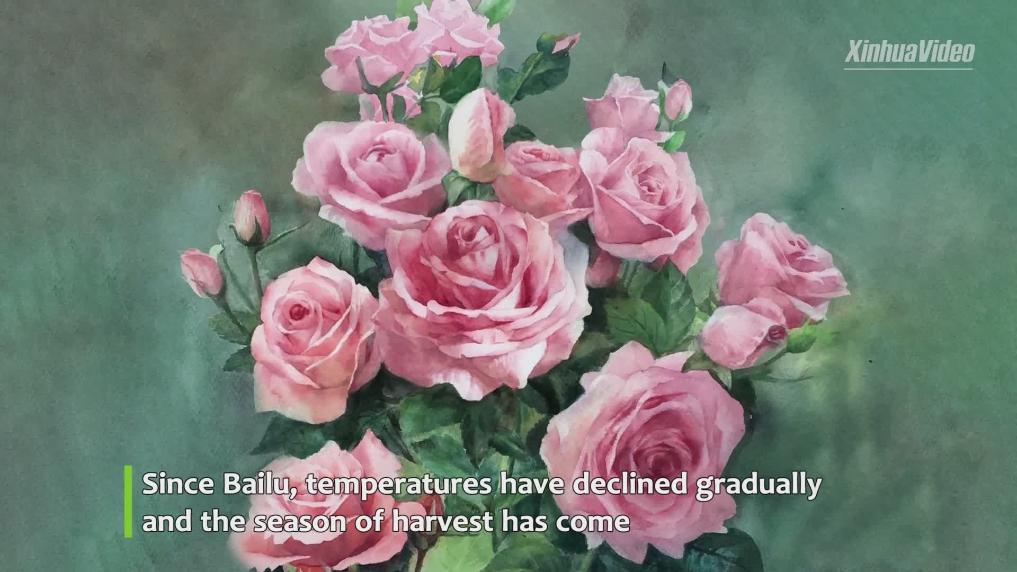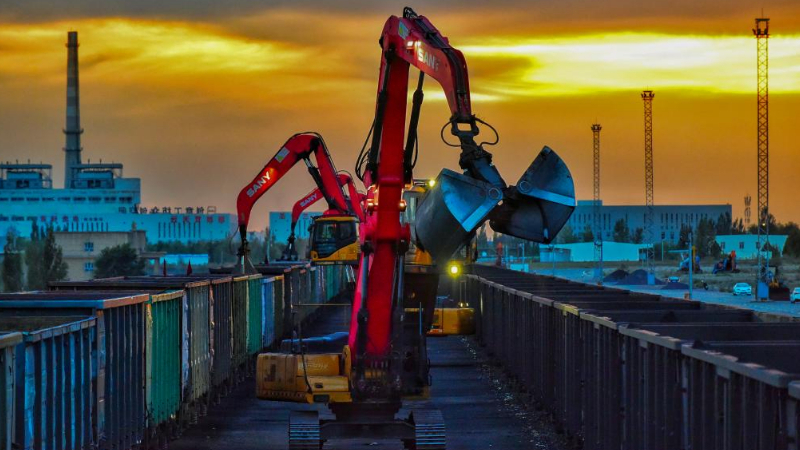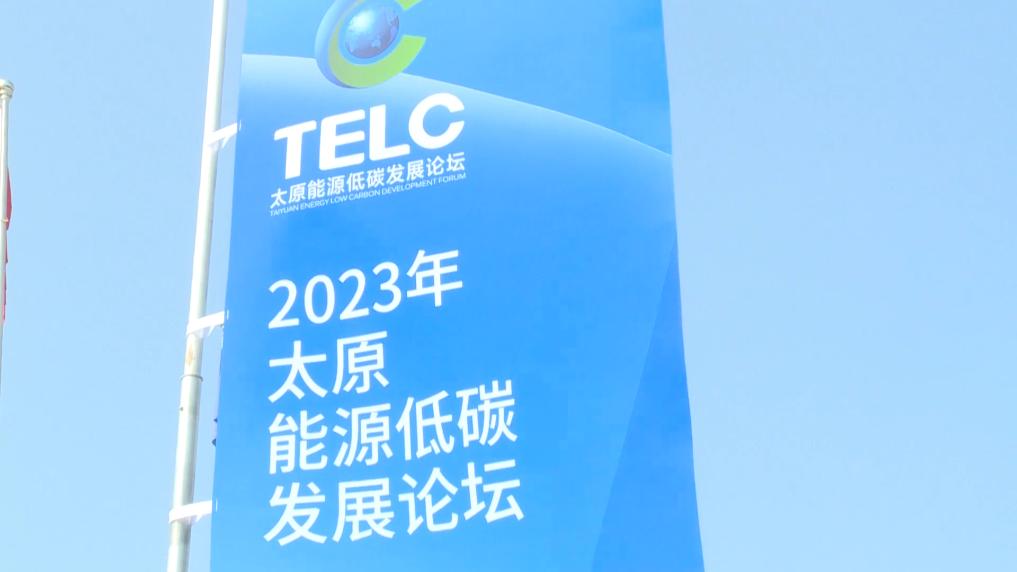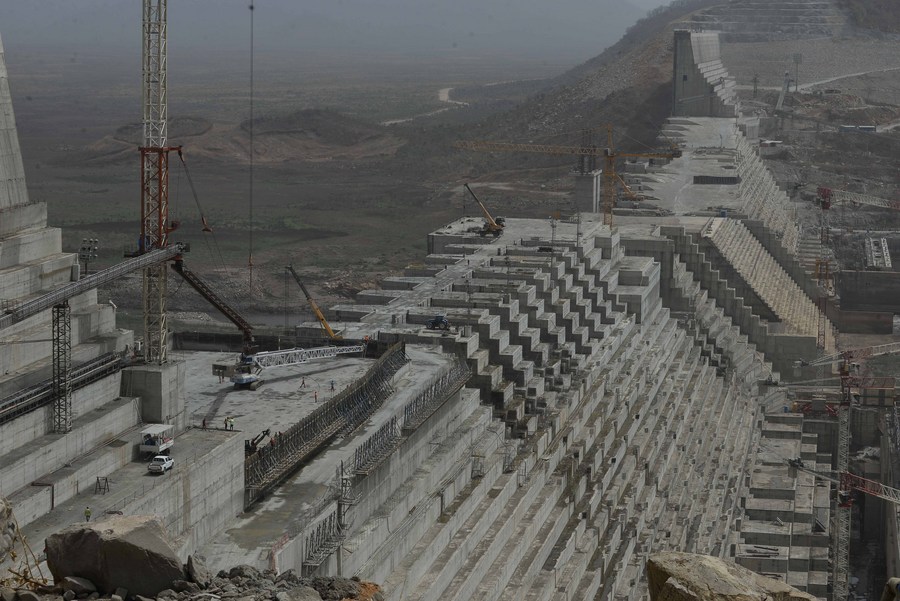
Photo taken on April 2, 2018 shows a mega dam in Guba, Ethiopia. (Xinhua/Michael Tewelde)
Ethiopia's Prime Minister Abiy Ahmed on Sunday announced the completion of the fourth and final filling of the Grand Ethiopian Renaissance Dam (GERD) reservoir, as he congratulated Ethiopians on the milestone achievement.
ADDIS ABABA, Sept. 11 (Xinhua) -- Ethiopia's Prime Minister Abiy Ahmed on Sunday announced the completion of the fourth and final filling of the Grand Ethiopian Renaissance Dam (GERD) reservoir, as he congratulated Ethiopians on the milestone achievement.
"We had encountered internal challenges and external pressures; and we have overcome all these challenges and are able to reach this phase," Ahmed wrote on social media X, formerly known as Twitter.
The filling is said to mark a major milestone for the East African country in its quest to satisfy the growing energy demands for its socioeconomic development.
In July, Ethiopia announced that the fourth filling of the dam reservoir would extend until September but stressed the downstream countries would not be harmed.
The latest announcement followed just weeks after Egypt, Ethiopia and Sudan held a new round of negotiations over the long-running dispute regarding Ethiopia's mega hydroelectric dam.
Ethiopia commenced filling the dam reservoir in 2020 despite concerns from Egypt and Sudan, which eventually led to the suspension of relevant tripartite negotiations in 2021.
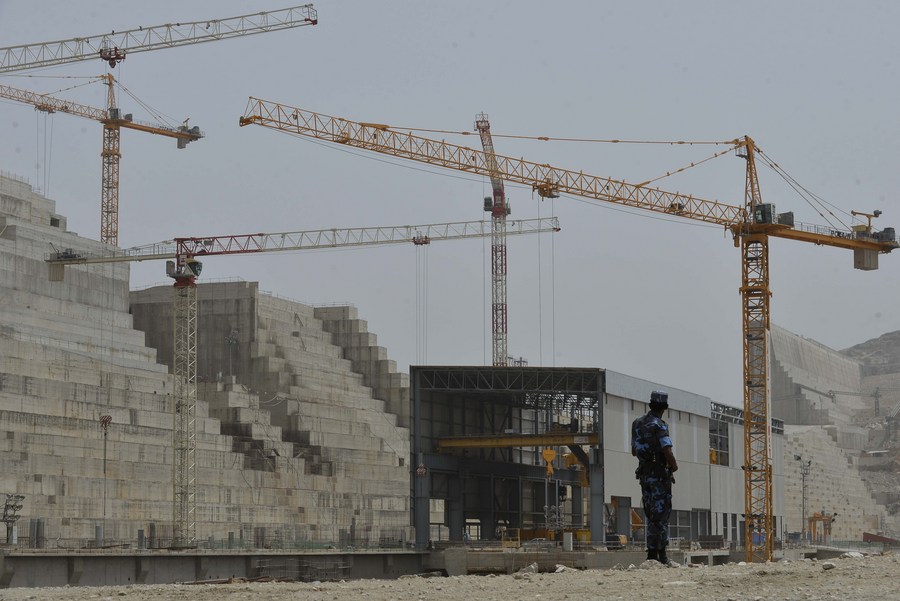
A security officer beefs up security at a mega dam site in Guba, Ethiopia, April 2, 2018. (Xinhua/Michael Tewelde)
The Horn of Africa country started to build the GERD on the Nile River in 2011 and expects the giant hydropower project to generate more than 6,000 megawatts of electricity an hour. The project, however, has been a major issue of dispute among the three Nile-bounded countries.
Ethiopia reiterates that the dam will power its development aspirations and boost its ambition to attain middle-income status in the near future. Meanwhile, Egypt and Sudan frequently express their concern that the dam would affect their share of the river waters. ■



